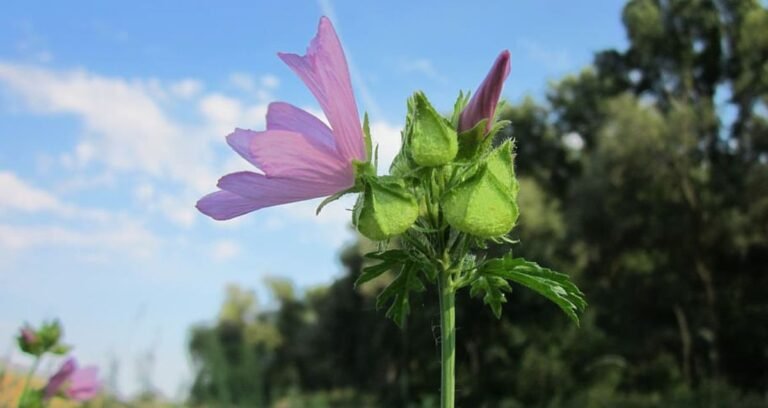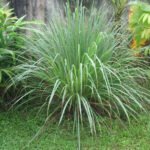Overview
If you have searched Best Herbs for Eyesight-Best Herbs for Eyes then you are serious about your eyes, if you do not have eyes then you cannot see this beautiful nature, importance of eyes once from the blind. Abelmoschus moschatus Medik, commonly known as musk mallow or Ambrette or Latakasturi , has a rich history deeply rooted in its cultural significance and diverse applications. Native to India, this herbaceous plant belongs to the Malvaceae family and has been cultivated for centuries for its unique aromatic and medicinal properties. Don’t Miss The conclusion.

Rich in Antioxidants
- Musk Mallow, scientifically known as Ambrette, boasts a rich array of antioxidants that can play a significant role in supporting eye health. Antioxidants, such as flavonoids and polyphenols, function as protective agents against oxidative stress. The eyes, being highly susceptible to oxidative damage from free radicals, benefit from these compounds. They help neutralize harmful molecules, potentially reducing the risk of eye diseases associated with oxidative stress.
- Studies suggest that a diet high in antioxidants may contribute to maintaining the integrity of ocular tissues, including the retina. Regular consumption of Musk Mallow, with its antioxidant content, could thus be considered a proactive measure in promoting long-term eye health.
Vitamin A Content
- Musk Mallow contains a notable amount of vitamin A, a crucial nutrient for vision. Vitamin A is integral to the proper functioning of the retina, playing a central role in low-light and color vision. Adequate vitamin A intake is associated with a reduced risk of night blindness and other vision-related issues.
- The presence of provitamin A carotenoids in Musk Mallow, such as beta-carotene, allows for the conversion of these compounds into active vitamin A within the body. This ensures a sustainable and bioavailable source of this essential nutrient, contributing to the maintenance of optimal eye function.
Anti-Inflammatory Properties
- The anti-inflammatory properties of Musk Mallow make it a potential ally in mitigating inflammation in the eyes. Chronic inflammation is implicated in various eye conditions, including dry eye syndrome and certain types of conjunctivitis. By incorporating Musk Mallow into one’s diet, individuals may benefit from its anti-inflammatory effects, potentially reducing the risk or severity of inflammatory eye issues.
- These anti-inflammatory properties extend beyond the eyes, positively influencing overall systemic inflammation. A holistic approach to inflammation management may indirectly contribute to maintaining ocular health.





Hydration for Eye Health
- Musk Mallow, with its water content, contributes to the overall hydration of the body. Adequate hydration is paramount for maintaining the moisture levels in the eyes, preventing dryness, and supporting optimal visual comfort.
- Dry eyes can lead to discomfort, irritation, and a higher likelihood of developing certain eye conditions. Including Musk Mallow in the diet as a hydrating component may aid in preventing or alleviating symptoms associated with insufficient tear production and ocular dryness.
Supports Overall Immune Health
- The immune system plays a vital role in safeguarding the eyes from infections and diseases. Musk Mallow’s nutritional profile includes elements that support overall immune health, potentially enhancing the body’s ability to fend off pathogens that could affect ocular tissues.
- Nutrients such as vitamins C and E, present in Musk Mallow, are known for their immune-boosting properties. Strengthening the immune system through regular consumption of Musk Mallow may indirectly contribute to maintaining a healthy environment for the eyes.
Essential Minerals
- Musk Mallow contains essential minerals, including zinc and selenium, both of which are critical for maintaining optimal eye health. These minerals play roles in various ocular functions, from supporting the structure of eye tissues to preventing age-related degenerative conditions.
- Zinc, for instance, is present in high concentrations in the retina and contributes to the function of enzymes involved in visual processes. Selenium, on the other hand, acts as an antioxidant and may help protect the eyes from oxidative damage. Including Musk Mallow in the diet can thus be a strategic way to ensure an adequate intake of these vision-supporting minerals.
Promotes Blood Circulation
- Improved blood circulation is vital for supplying the eyes with oxygen and essential nutrients, contributing to overall eye health. Musk Mallow may play a role in promoting healthy blood flow, thereby supporting the delivery of these vital elements to ocular tissues.
- Compounds within Musk Mallow, such as flavonoids, have been associated with cardiovascular benefits, including the promotion of blood vessel dilation. By positively influencing blood circulation, Musk Mallow contributes to creating an environment conducive to the sustained well-being of the eyes.
Reducing Eye Strain
- In the modern era, where digital screens dominate daily life, eye strain has become a prevalent issue. Musk Mallow’s potential anti-inflammatory effects and its role in promoting overall eye health make it a candidate for reducing eye strain associated with prolonged screen time.
- Anti-inflammatory properties may help alleviate discomfort and redness, while the holistic support for eye health may enhance resilience against the adverse effects of prolonged visual tasks. Including Musk Mallow in the diet can be part of a comprehensive approach to mitigating eye strain in our technology-driven lifestyles.
Potential Antimicrobial Properties
- Musk Mallow has a historical reputation for its potential antimicrobial properties. While more research is needed to fully understand the extent of its antimicrobial effects, these properties may contribute to preventing or alleviating eye infections caused by bacteria, viruses, or other pathogens.
- Traditional uses of Musk Mallow in some cultures involve its application in treating various ailments, including eye infections. While not a substitute for conventional medical treatments, the potential antimicrobial properties of Musk Mallow suggest a historical recognition of its role in promoting ocular health.
Traditional Uses in Eye Care
- Musk Mallow has been employed in traditional medicine systems for its perceived benefits in eye care. While anecdotal, this historical use underscores its cultural significance and hints at its potential in promoting eye health.
- In some traditional practices, Musk Mallow has been used in formulations or remedies aimed at addressing specific eye-related concerns. While modern scientific research is ongoing to validate these traditional uses, the historical trust placed in Musk Mallow suggests a longstanding acknowledgment of its potential role in supporting eye health.
Conclusion
FAQ 👇☘️
What is Musk Mallow?
Abelmoschus moschatus Medik, commonly known as musk mallow or Ambrette or Latakasturi, is a flowering plant with aromatic properties. People are intrigued by its pleasant fragrance and have explored its potential health benefits.






